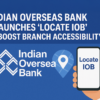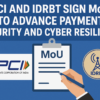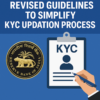Men and women are creatures of habits. Habits have a unique way of making life easier. Banking Frontiers posed the question: ‘What are the key habits that have contributed in shaping your professional success?’ 13 women responded.

Monu Jain, Country Head – Mid Corporate Banking & SME Business at IndusInd Bank explains why we form habits: “When you acquire a habit, the brain rewires so that doing that task takes very little energy and makes it much more efficient. And that’s the reward you get by forming good habits.”
With this explanation, let us look at the habits that some of the women leaders have adopted. For Rajashree Nambiar, Former MD & CEO at Fullerton India Credit Company, the key ingredient of her success is self-discipline. She elaborates: “Self-discipline about my own health, about the time that I spent with my family, self-discipline for compartmentalizing my life and my hectic work has helped me to manage challenges of my work-life.”
Another of her habits is cultivating hobbies, as work is not her whole and sole priority. “My primary hobby is cooking since it helps me to de-stress and relax. I also like running marathons. I try to run for one hour every day, even while I am travelling, I try to run across the neighborhood on the roads.”
Rajashree has an interesting hobby, which she has made a habit. Her third habit is mandatory travel breaks. She travels every year during summer to some new country. “I have visited 39 countries,” she says with pride.
READING, LEARNING
For Shoma Narayanan, Executive Director – Group Strategic Marketing & Communications at DBS Bank India, reading is the habit she emphasizes, which has been with her since her school and college days. Now-a-days, she reads within the areas of her expertise and specialization (marketing communications and sustainability) and even beyond, ie, books that are of general interest. Says she: “This is the key of pretty much any kind of success anywhere.”
Her second habit is to have a learning habit. She expands: “I make sure on a monthly basis that I begin learning a new skill or continue developing something that I have not done in the past.”
Her third habit is very mundane and practical and that is making to do lists all the time. “When I was a kid, it used to be lists around what I need to study for exams, but now obviously it’s about slightly more evolved stuff. I do believe that for big projects, using the combination of technology and good old-fashioned notebooks helps keep track of deliverables.”
Shoma’s fourth habit is to regularly reach out to people who she works with who are key stakeholders. She has scheduled interactions with them because that’s important. “Sometimes, if you don’t do that you miss out on either deliverables or opportunities,” she explains.
BEGIN WITH THE END
L Chiranthi Cooray, Chief Transformation Officer at Hatton National Bank, is a fan of Stephen Covey’s habit No 2 – ‘Begin with the end in mind’. It has been her motto in life. She has achieved success and excellence in strategy execution, staying committed to this habit.
Her second habit is writing resolutions for the new year. “The resolutions are on a wheel with different spokes, and each spoke represents a different area. I review it during mid-year to ensure that I am on track. Examples are family, career, spirituality, fitness, investments, etc. I generally manage to achieve quite a bit,” she explains.
Her next habit is more of a personality than a habit. “I am open and accepting of people; I believe in humanity,” she says.
Monu Jain has a habit of planning and being organized. “I am an extremely calenderized person. It helps you get the most out of your day. Women play so many roles like mother, daughter and career women. There are so many balls we are juggling every day and this way we can make sure that no ball falls,” she explains.
Beyond time management, Monu has the habit of striving for excellence which has helped her in her professional career. “It has been innate in me right from the beginning. It helps me put my best foot forward,” she describes.
Another pet habit for Monu is meditation. She feels that it is just not for the elderly and retired. It helps to soothe and calm down. “It helps me to increase my focus and concentration which in turn increases my efficiency. With spirituality comes empathy for the people you work with, for the people around you,” she adds.
PASSION & PLANNING
Nitu Samra, Chief Financial Officer at LeasePlan India, has a lot in common with Monu Jain. Her 2 biggest habits are the two Ps of her life: Passion & Planning. “These 2 habits have really helped me. If you have the passion to do something, then nothing stops you from achieving it. But another critical element is planning,” she explains.
Like Chiranthi, Lalitha Bhatia, Chief Operating Officer at Ageas Federal Life Insurance Company, too is a big fan of Stephen Covey. In her days as a young manager, she found some of those habits to be really useful. “I tried to inculcate some of the habits in the book like being proactive, begin with the end in mind and synergizing with my colleagues. Some of these habits are very useful in corporate world. As women, we are always short of time. One habit is putting first things first, which helps you segregate between the urgent and important and do things which are important first. I think those are the habits which are useful.”
Like Shoma, Nilufer Mullanfiroze, Country Head – Deposits, Cards & Retail Unsecured Lending at Federal Bank is constantly learning what is happening with customers, with technology, with regulatory framework, which keep evolving. She believes in consciously picking a few aspects to learn continuously, in the domain that she is working in or aspiring to work in.
She explains further: “In the lockdown, people discovered or started using their latent talents more. Learning today is no more about physically going to an institute and doing a post-graduate course only; there are so many online courses. The concept of learning itself has changed. Sub-consciously we all do it, but in a conscious manner to keep doing it has helped me.”
Her other habit is balancing stuff out. She expands: “There is an old HR concept of consumer behavior called balcony and dance floor, which means you are continuously on the shop floor trying to solve day-to-day fires, or you are going to the balcony and from 30,000 feet view guiding the teams on what to do. In an ever-evolving world, it is not either-or. So as a leader how do you ensure that you manage and balance out both constant learning with the team, constant guidance with the team, and at the same time strategically taking a longer view?”
Balancing out applies to the person side as well. She quotes Indira Nooyi: “The professional trajectory and the biological clock are constantly at a fight.” The peak career is in 25-30 age category. It is also the time when women are getting married, settling and moving to a different house/city. “So how do you balance that out as there is no right or wrong answer? It depends on that situation and on that moment. How you manage the balance becomes important,” avers Nilufer.
Her third habit is discipline. She explains with examples: “If it is not on my calendar, there is no way I would remember that I have a doctor’s appointment or have to go for a school PTA. Each of us has different styles – some have diaries, some have fantastic memory, some use digital tools like notes, posters, calendars, but consciously managing time in a disciplined way is important, because then you can allocate time for everything that is important to you – family, kids, spouse, work, etc.”
PRIORITIZING A MUST
Mauli Bodiwala, AGM – HR at The Kalupur Commercial Co-op Bank, explains the problem and then the habit which is her solution: “Every day when we get up, we have lots of things like calls, WhatsApp messages and other of things to do, and we get diverted to many things. But what we need to do is, when we start our job, for the first 15 minutes we should prioritize the things. We should not attend any calls or meetings. We should know what we want to do today and not get diverted. Else we will go fast, but the direction is wrong. So rather than doing that, what I prefer is just sit for 15 minutes, just decide what are my priorities for today, and list down the priorities, then how I can achieve these priorities, and then I start working for that.”
She explains her second habit: “Any task can never be accomplished by one person alone; however competent he or she is; you need a good team. What then is needed is a ‘we’ approach rather than an ‘I’ approach. As far as you progress in your life, you should focus more on the ‘we’ approach. Now, when I meet my team members, I discuss with them and encourage them to give their own views. I do not interrupt when they give their ideas. But of course, the final decision after getting their ideas is mine only. Of course, you need to know the strengths and weaknesses of your team members. Based on their strengths, I delegate them their work.”
Mauli suggests one should delegate the work in the first half only, so that they can have a second half or enough time to complete that task.
The third habit Mauli highlights is that when your goal is accomplished, you need to definitely give the credit to your team members. Once you give them the credit, then they will feel motivated, and they again work with the same energy and enthusiasm. It is important to make them feel that even their boss or leader have interest in them.
PERSONALITY TRAITS
 For Ashima Bhat, Group Head – Business Finance, Strategy, Administration, Infrastructure & CSR at HDFC Bank, her habits are her personality traits. She emphasizes the ability to work hard and the ability for perseverance. “What I would classify as a habit is punctuality and sticking to commitments,” she says.
For Ashima Bhat, Group Head – Business Finance, Strategy, Administration, Infrastructure & CSR at HDFC Bank, her habits are her personality traits. She emphasizes the ability to work hard and the ability for perseverance. “What I would classify as a habit is punctuality and sticking to commitments,” she says.
For Shalini Rajani, Head – Training & Call Center at Fino Payments Bank, passion is her pet habit. She explains: “I have passion towards my job, my work, and because I wanted to retain that passion, sincerity played a role there. That, I would say, is the most important role. I have a passion to create leaders because after initial years of career, I found that as you grow, you need more people with you. So, I have learnt that you cannot be successful unless you have a great team along with you.”
Babitha B P, CISO at CSB Bank, first explains the context for her habits. The key role of a cyber-security professional is to reduce cyber risk. Cyber risks can arise due to operational issues, gaps in physical security or due to network architecture issues. We need to communicate these issues to non-cyber security professionals so that we can make them understand the gaps and the impact it can bring about along with solutions to mitigate them.
“We have to cultivate a habit to communicate in such a way that we can match the right information to the right people at the right time, in a way that a non-cybersecurity professional can understand and act upon. How efficiently we do that determines the success of our profession. Key habits to become a successful cyber security professional are good analytical skills, introspection skill, continuous learning and updated with latest trends in the cyber world, multi-tasking skills and above all communication skills,” she explains further.
Sumanlatha Sanghi, Head – Account & Channel Maintenance at ANZ, shares 4 habits that have made her successful: “First is challenging myself to do new things. It is fine if I fail, but it makes me a better person as I learn what my strengths are. Second is taking feedback constructively as they make me see what I need to improve. But it does not mean you just listen to feedback; it’s about having a constructive discussion that enables you accept what you need to work on. Third is accepting failure – this had taught me to move on and become better in the next actions I take and become positive in my attitude. Fourth is being planned and organized and having enough time to relax and have a good personal life too. This creates the energy to deliver well at work and at home.”
Purvi Bhavsar, Managing Director at Pahal Financial Services, has the longest list of habits among our participants. Her first habit is mentality of asking questions and always questioning the status quo. Her second habit is an eye for details, which she has developed over a period of time. She lists the others as: “Aiming for perfection, ie, not wanting to fail as failure is not an option, being extremely focused and task oriented, reading and punctuality.”
SUMMARY OF KEY HABITS
- Self-discipline
- Take travel breaks
- Cultivate hobbies
- Read
- Learn (new skills)
- Make to-do lists
- Interact with stake-holders
- Passion
- Plan
- Prioritize
- Challenge oneself
- Take feedback constructively
- Accept failure
- Work hard
- Persevere
- Effective communication
- We-approach
- Give credit to team members
- Begin with the end in mind
- Accept people
- Strive for excellence
- Meditate
- Be proactive
- Synergize with colleagues
- Balance
- Ask questions
- Eye for details
- Extreme focus
- Punctuality
- Time Management







